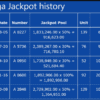Back on the up
This October will mark the 16th anniversary of the passing of the Unlawful Internet Gambling Enforcement Act (UIGEA). The 2006 legislation made it illegal for online poker sites to offer their services to US customers. Some major operators left the market immediately, while those that remained would suffer the consequences in what has now become known as Black Friday.
The UIGEA has defined the US poker scene for years, essentially halting what had become a booming industry in its tracks. However, this year’s World Series of Poker (WSOP) has provided some hope that the sector may have finally stepped out from the shadow of that damaging legislation.
the second-largest prize pool of all time
In the year the UIGEA came into effect, the WSOP Main Event saw its highest-ever number of entries at 8,773. Entry figures predictably dwindled afterward, but the number for WSOP 2022 has landed just shy of 2006’s record total at 8,663. Over the weekend, event organizers confirmed it will feature the second-largest prize pool of all time at $80.8m.
Momentum builds
To gauge the returned vigor of the US poker scene, it’s important to consider past data for the WSOP Main Event.
From 2003 to 2006, the Moneymaker effect contributed to rapid growth in the popularity of poker. When Chris Moneymaker won the WSOP Main Event in 2003, entries to the competition stood at just 839. Just three years later, that number was more than ten times higher with hopeful players hoping to recreate Moneymaker’s success.
In the year following passage of the UIGEA, Main Event entries declined by around 28% to 6,358. The total prize money dropped with it to just over $8m, down from the record $12m in 2006. Entries remained in this region for the next decade, dropping to a low of 6,352 in 2013 and reaching a high of 7,319 in 2010.
Things began to ramp up from 2017, however, with a clear pattern of steady annual growth. In 2019, 8,569 entries played a part in growing the prize pool to $10m. Despite the pandemic’s best efforts to stunt this growth – culminating in poor turnouts for the past two years – 2022’s near-record-breaking total suggests the rise in poker’s popularity is far from slowing down.
Repairing the industry
While the implementation of the UIGEA was the catalyst for the decline of poker’s popularity in the US, Black Friday seemed to put the nail in the coffin. On April 15, 2011, the US Department of Justice issued indictments against PokerStars, Full Tilt Poker, and Absolute Poker. It forced them to freeze more than 70 bank accounts, preventing players from accessing balances.
six states in which poker users can play online
Online poker has struggled to regain its former glory since then, but states soon began passing their own legislation. In 2013, Nevada became the first state to officially legalize online poker, followed by New Jersey and Delaware. Now, there are six states in which poker users can play online for money – Michigan the latest to join the party last year.
In 2021, the poker world received another major boost. The US DOJ opened the door to interstate online poker agreements by failing to appeal a federal ruling against its opinion on the Wire Act. Now, multiple states with online poker markets can pool players by signing interstate compacts. Nevada and Delaware became the first two to share liquidity in March 2015, while New Jersey joined up later. Again, Michigan was the latest state to take part in this.
This year’s WSOP figures seem a clear reflection of an industry that is beginning to see the light at the end of the tunnel. A journey began by Chris Moneymaker almost 20 years ago is now starting up again, and this time it seems the possibilities really are limitless.
The post WSOP 2022: US Poker Finally Stepping Out of UIGEA’s Shadow appeared first on VegasSlotsOnline News.







